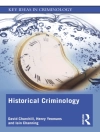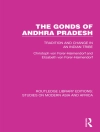'A stimulating history of how the imagination interacted with its sibling psychological faculties—emotion, perception and reason—to shape the history of human mental life.’—The Wall Street Journal
To imagine—to see what is not there—is the startling ability that has fueled human development and innovation through the centuries. As a species we stand alone in our remarkable capacity to refashion the world after the picture in our minds.
Traversing the realms of science, politics, religion, culture, philosophy, and history, Felipe Fernández-Armesto reveals the thrilling and disquieting tales of our imaginative leaps—from the first
Homo sapiens to the present day. Through groundbreaking insights in cognitive science, Fernández-Armesto explores how and why we have ideas in the first place, providing a tantalizing glimpse into who we are and what we might yet accomplish. Unearthing historical evidence, he begins by reconstructing the thoughts of our Paleolithic ancestors to reveal the subtlety and profundity of the thinking of early humans. A masterful paean to the human imagination from a wonderfully elegant thinker,
Out of Our Minds shows that bad ideas are often more influential than good ones; that the oldest recoverable thoughts include some of the best; that ideas of Western origin often issued from exchanges with the wider world; and that the pace of innovative thinking is under threat.
Spis treści
List of Illustrations
Preface and Acknowledgments
1. Introduction
2. Travel, Exploration, and Occupation
3. Living and Dying
4. Drives, Emotions, and Moods
5. Things, Sounds, and Spectacles
6. Communicating and Commanding
7. Charisma, Cannabis, and Crossing Africa:
Explorers in the Land of Friendship
8. Making Knowledge: The Senses and Cognition
9. Making Sense: Knowledge and Understanding
10. Presence and Representation
11. Epilogue
Appendix: Expeditions
Notes
Bibliography
Index
O autorze
Felipe Fernández-Armesto is an award-winning historian and the author of several bestselling books, including 1492, Ideas that Changed the World, and The Americas. He lives in Indiana and is a professor of history at the University of Notre Dame.












